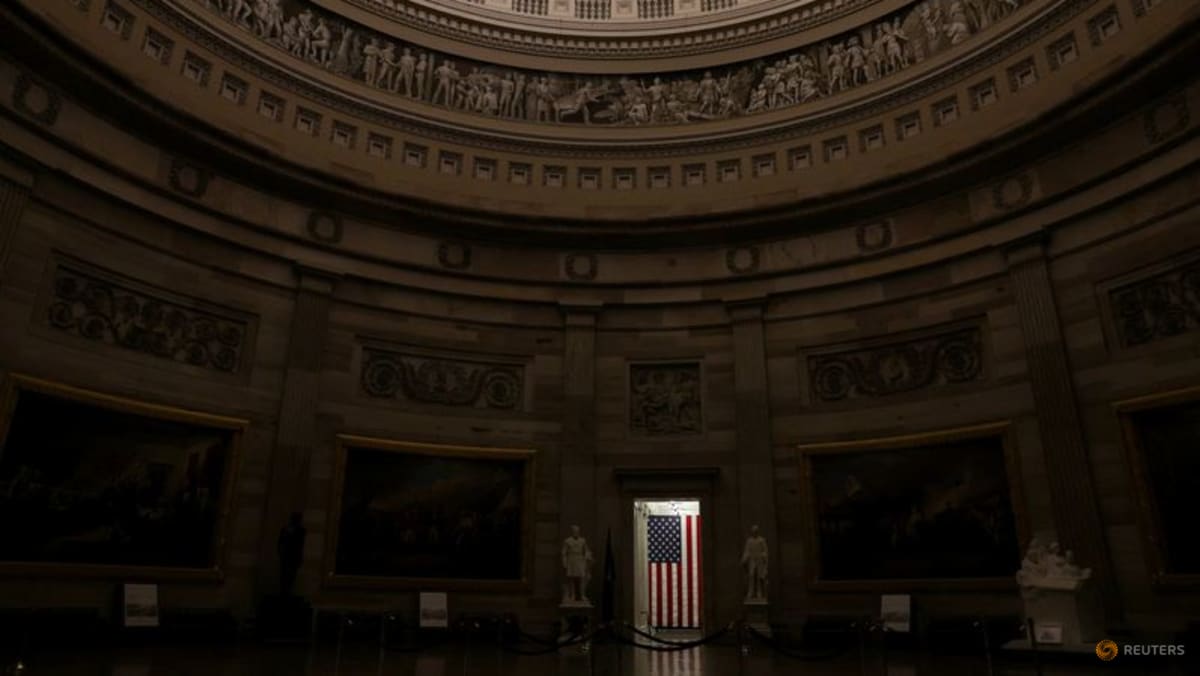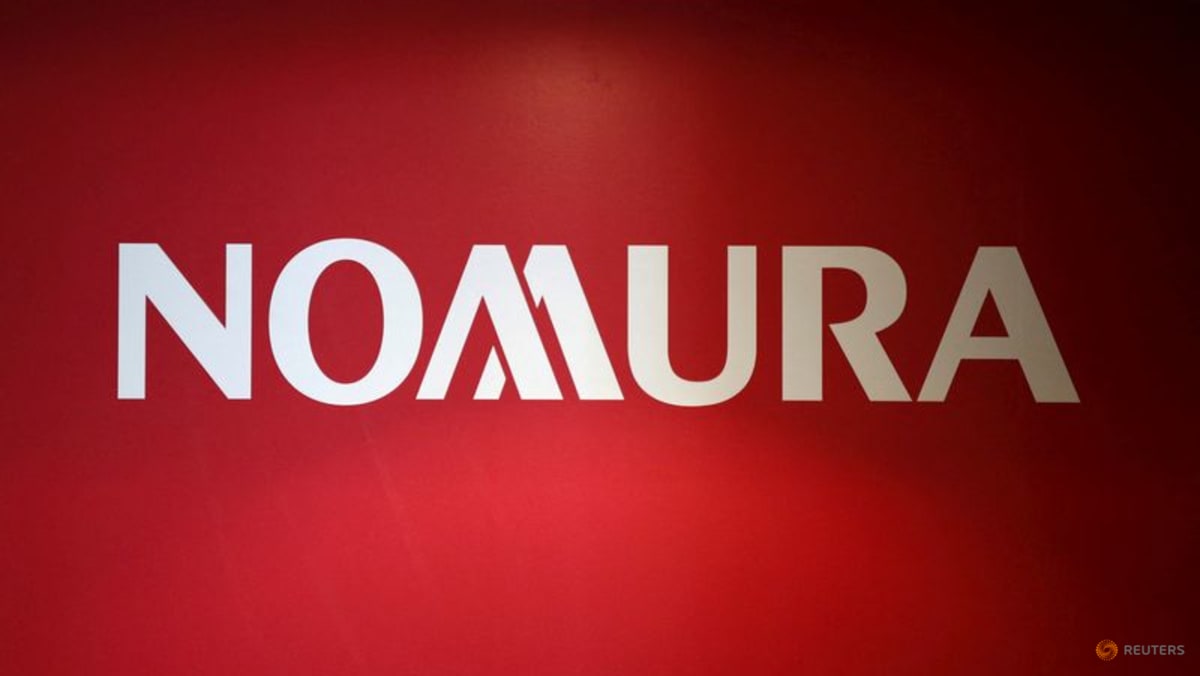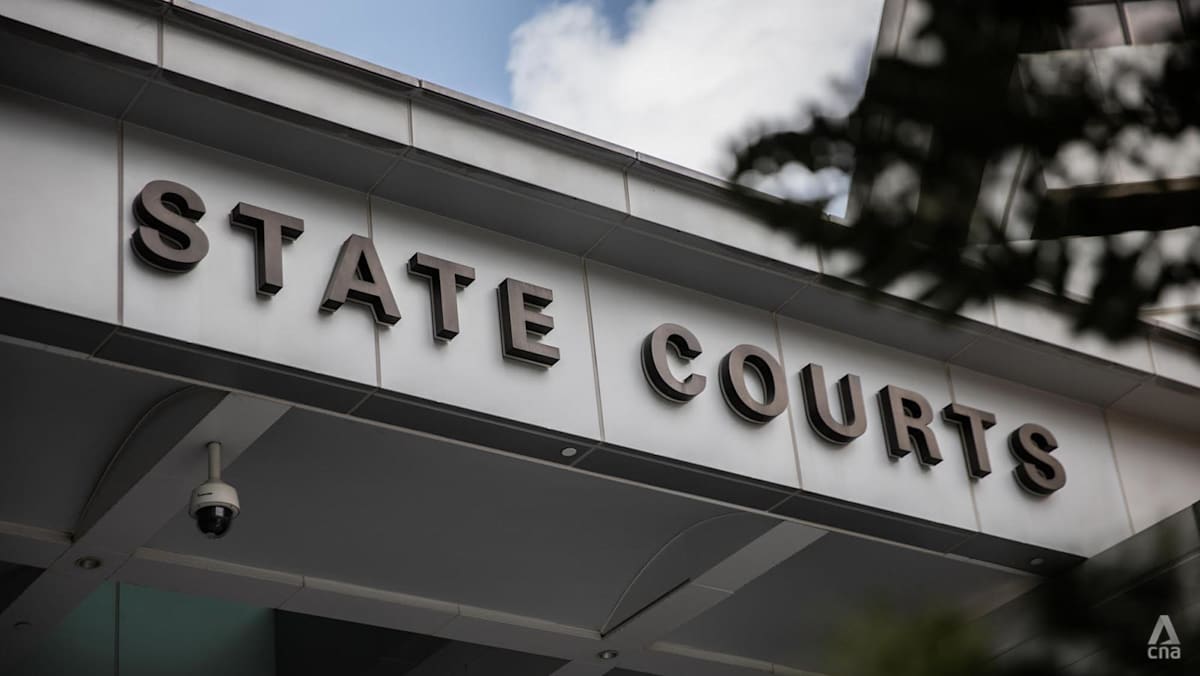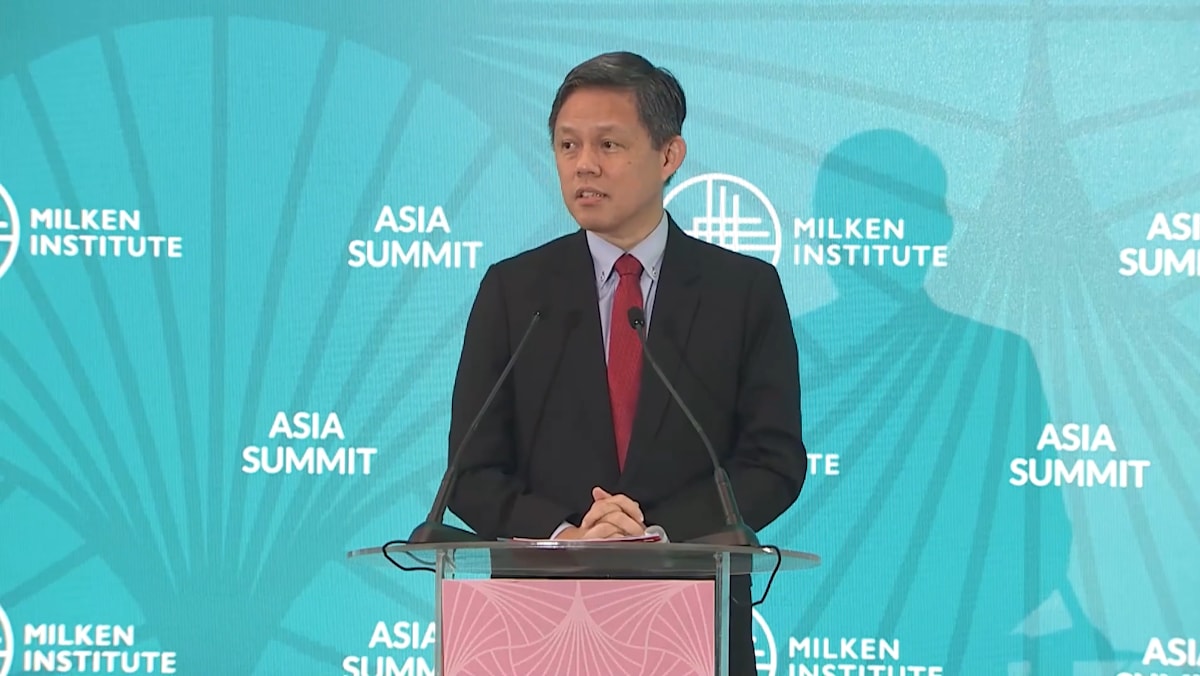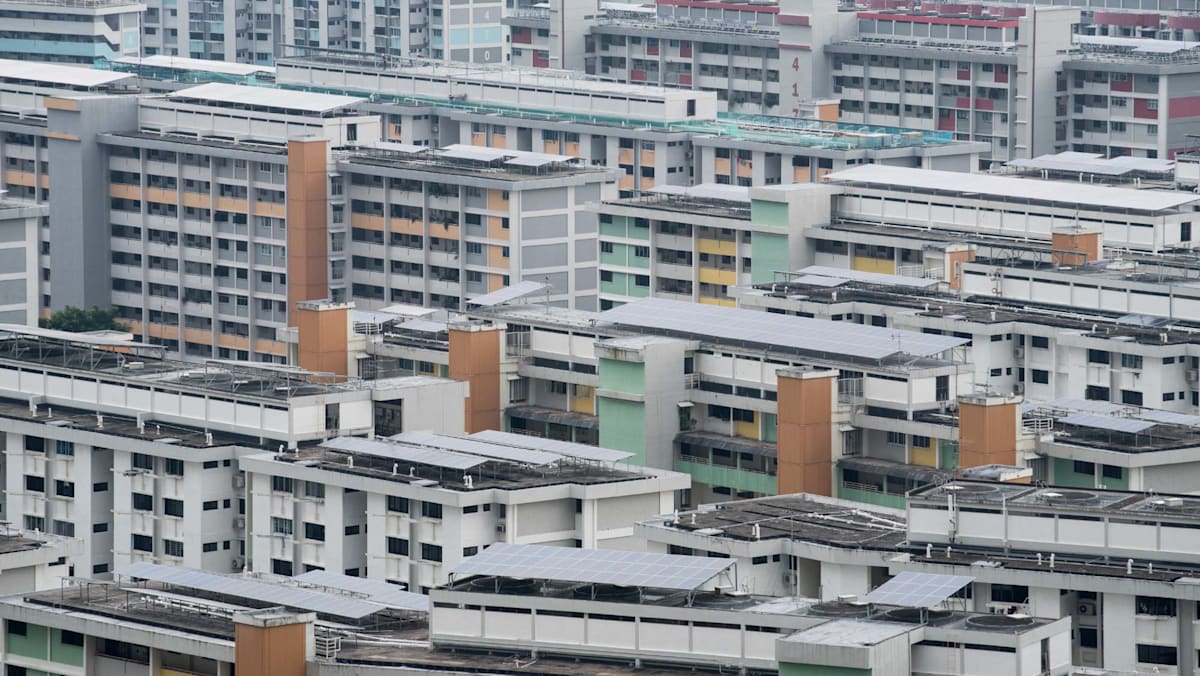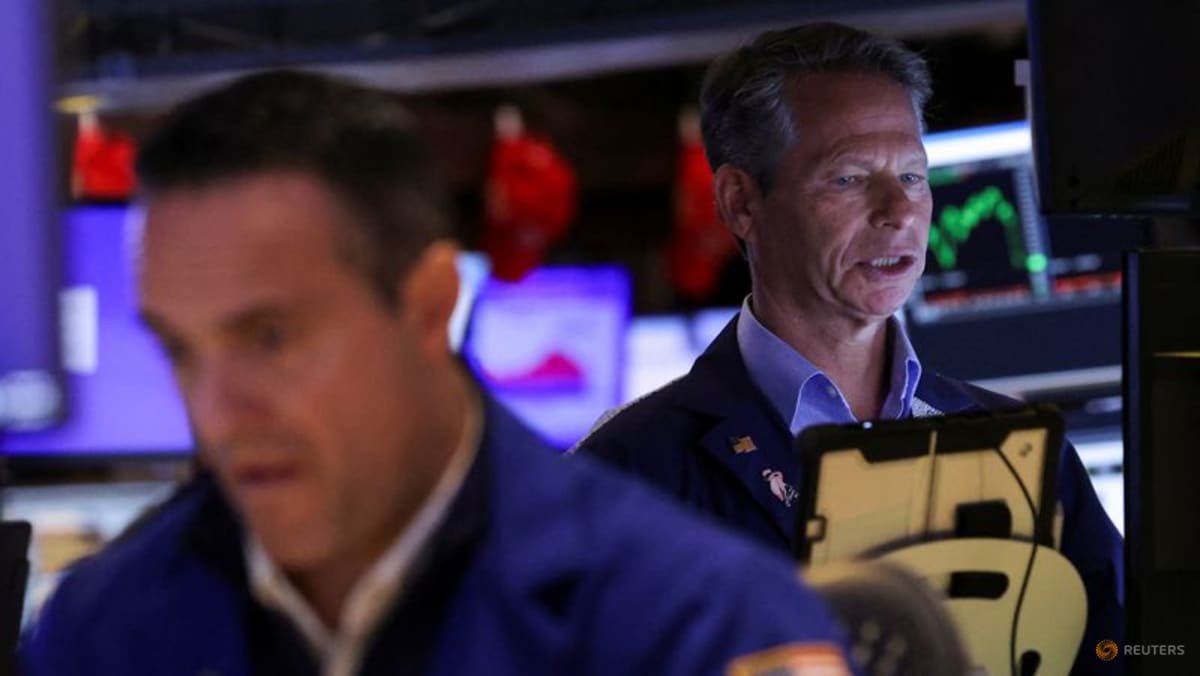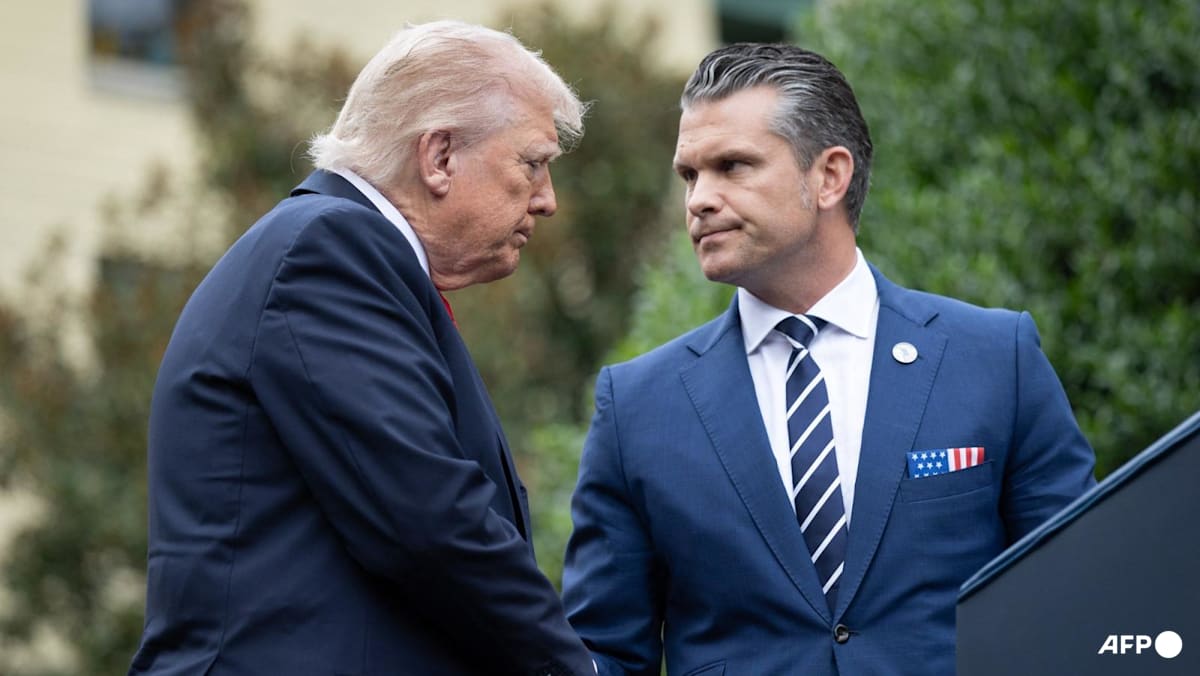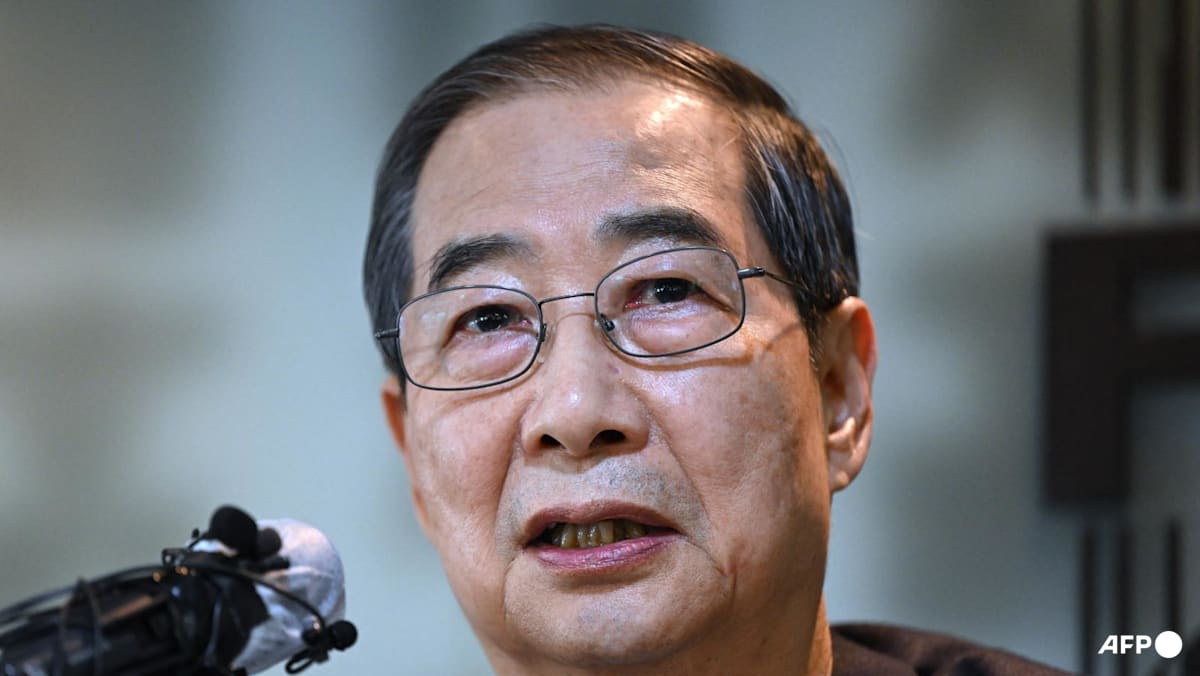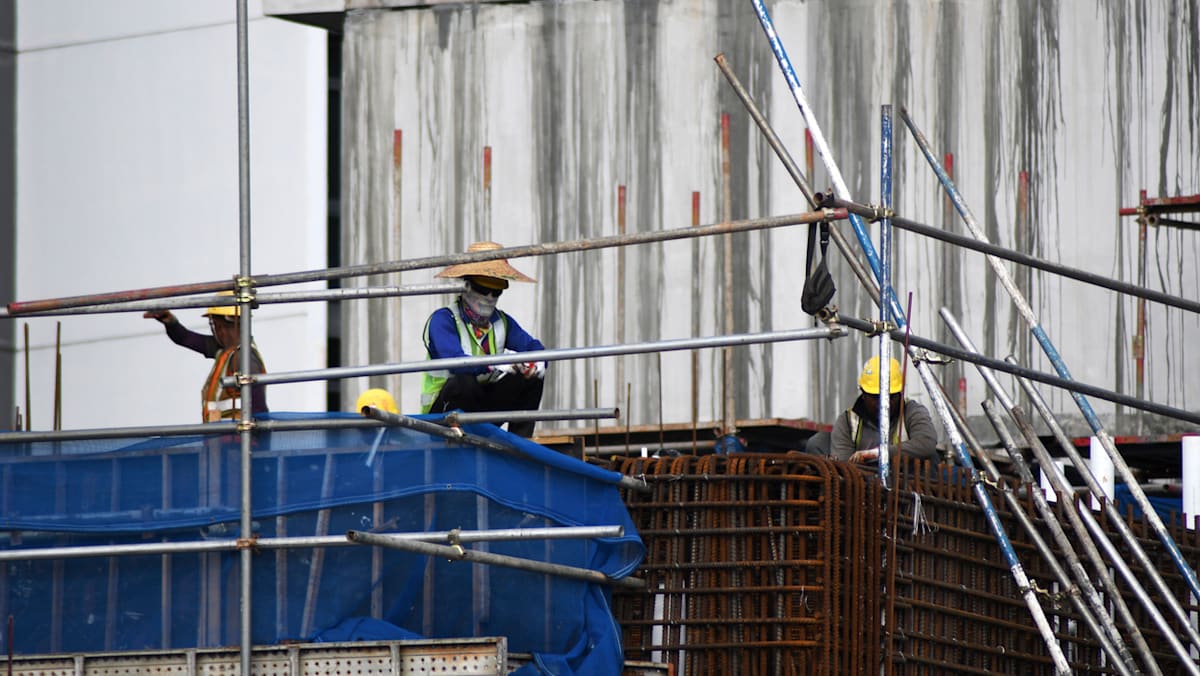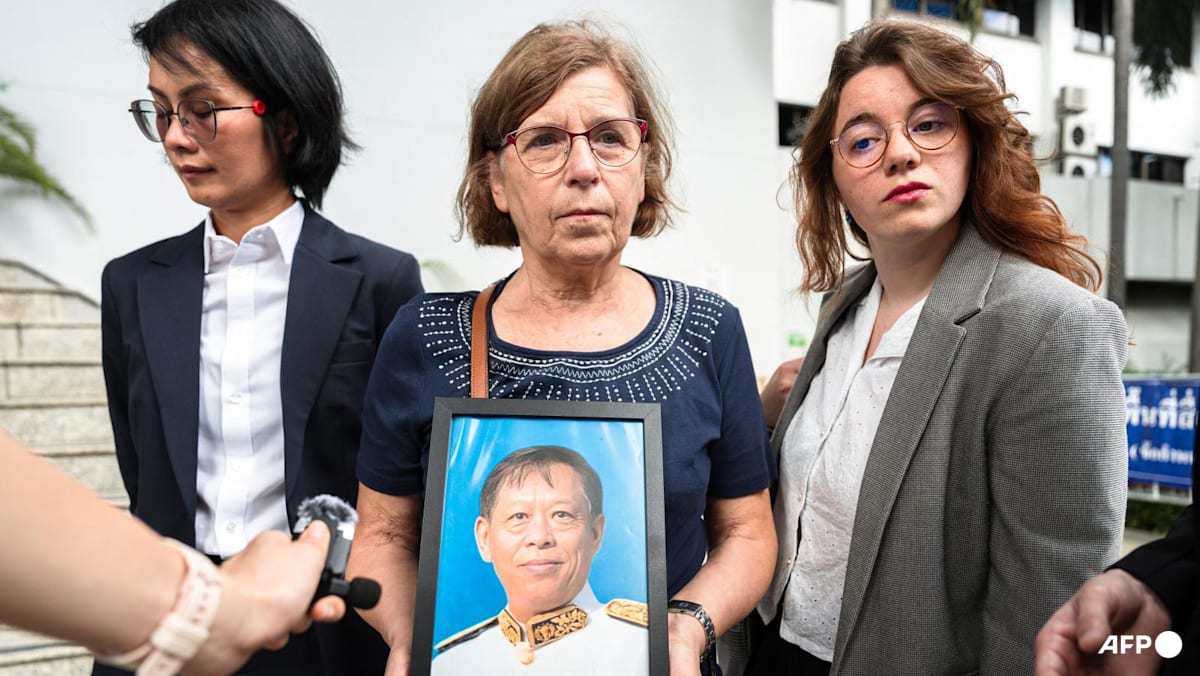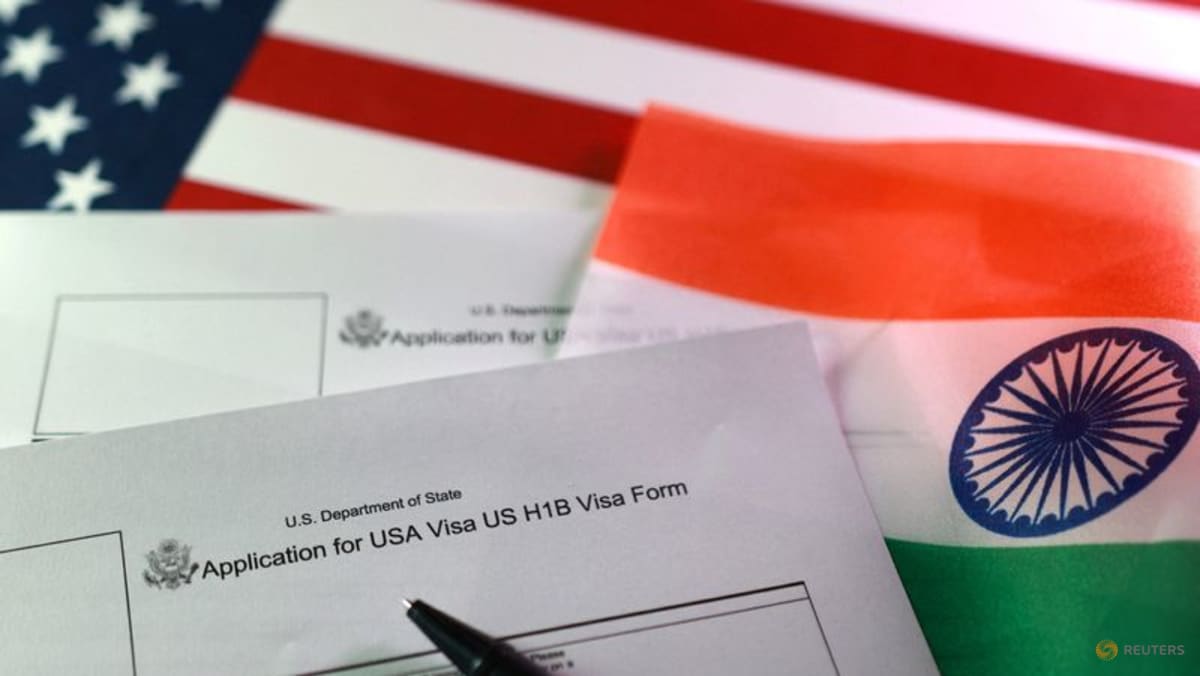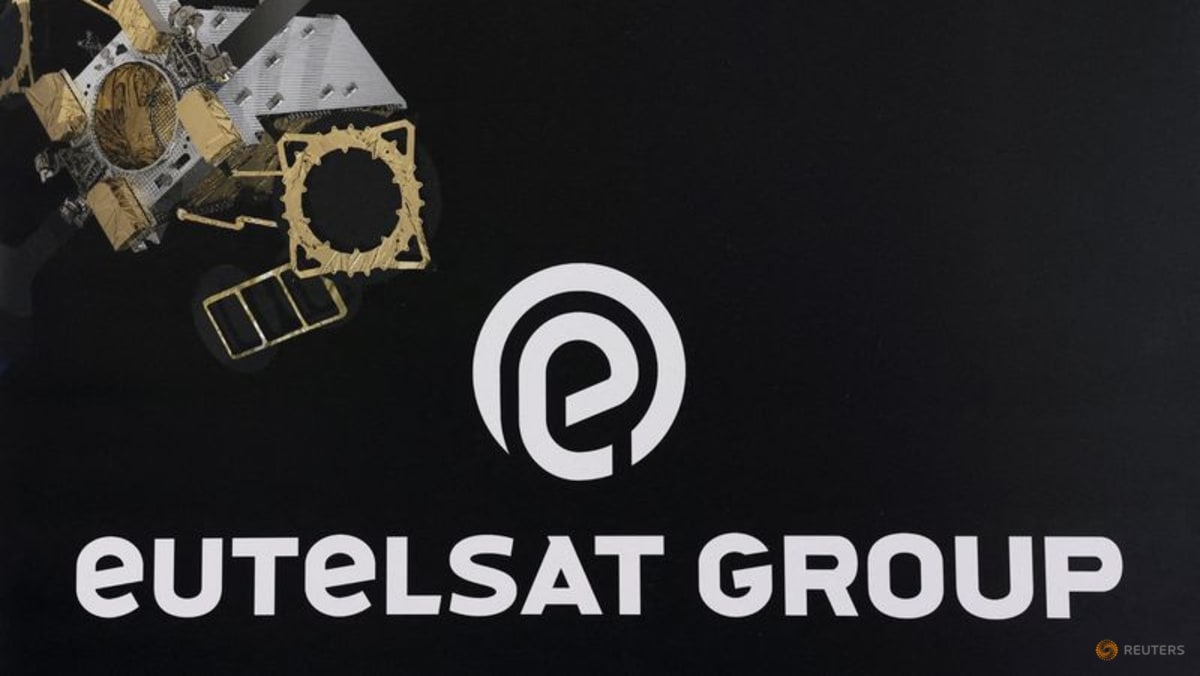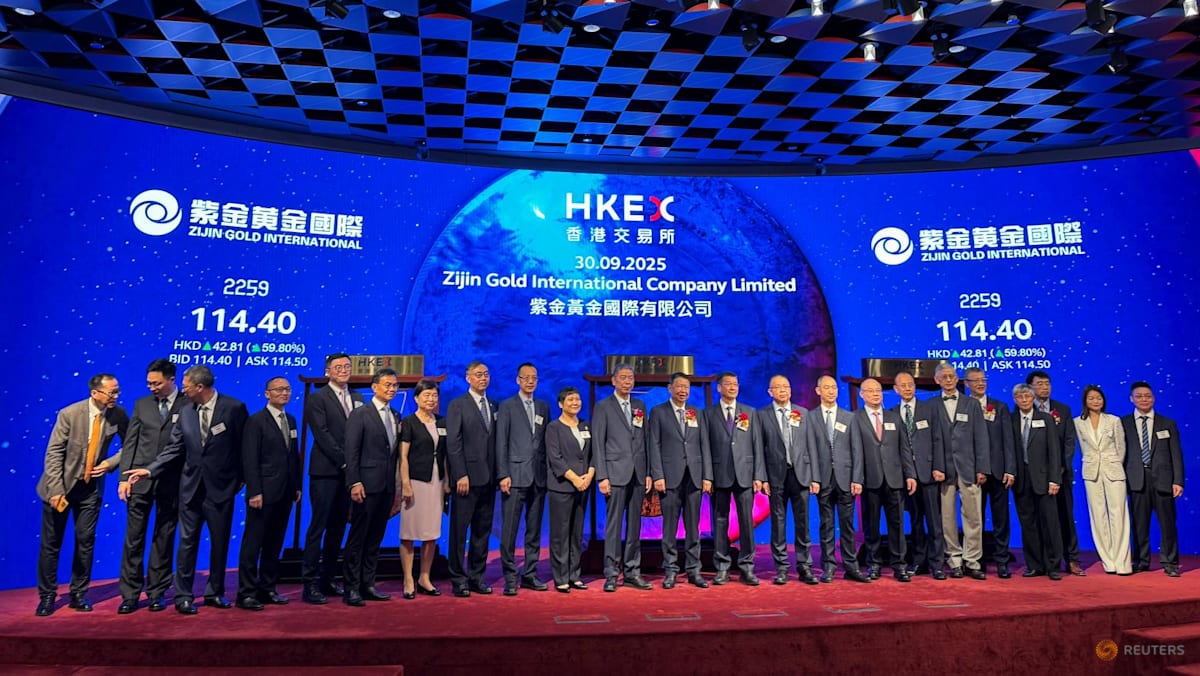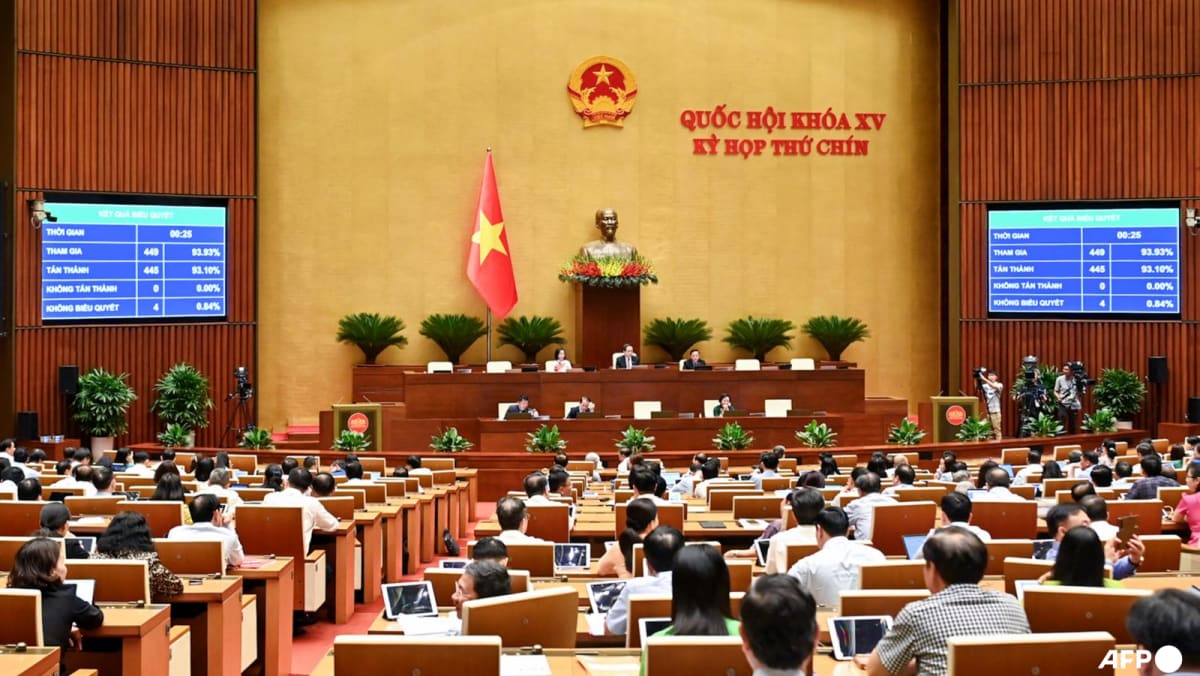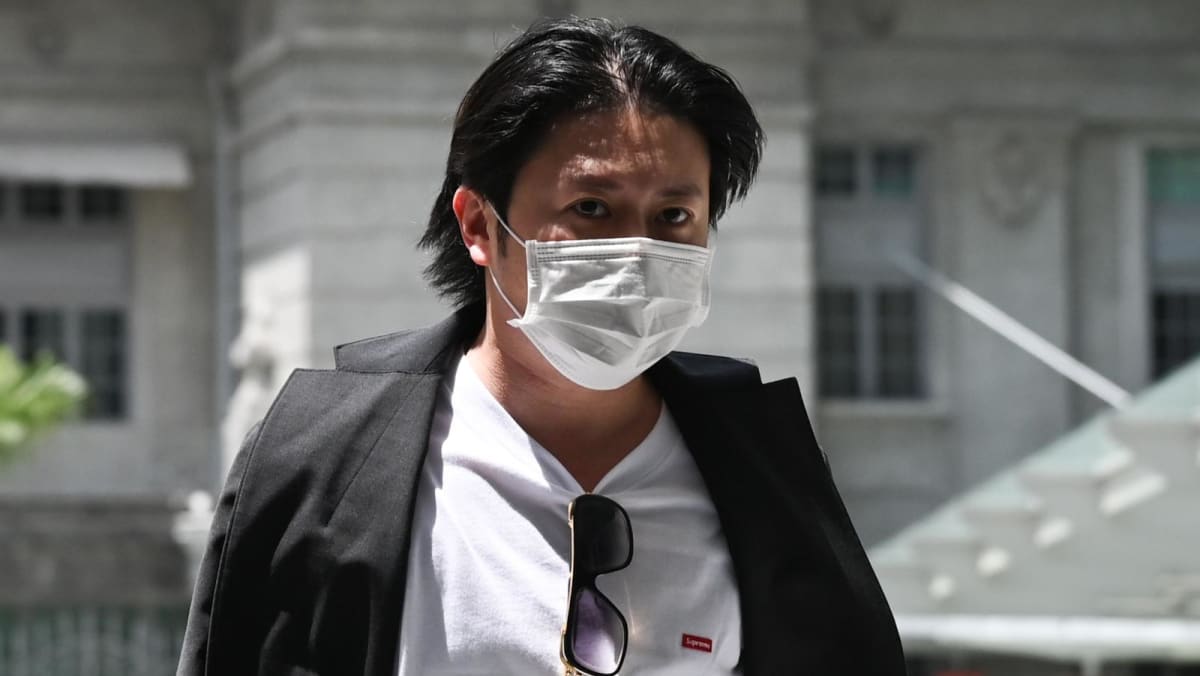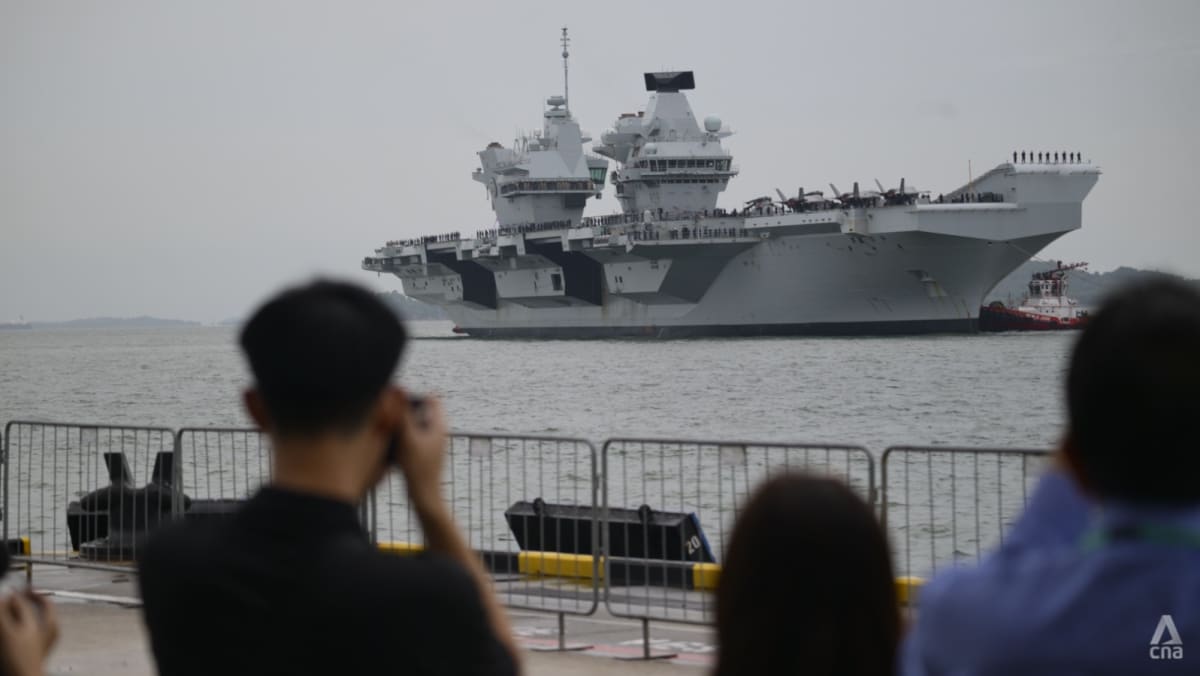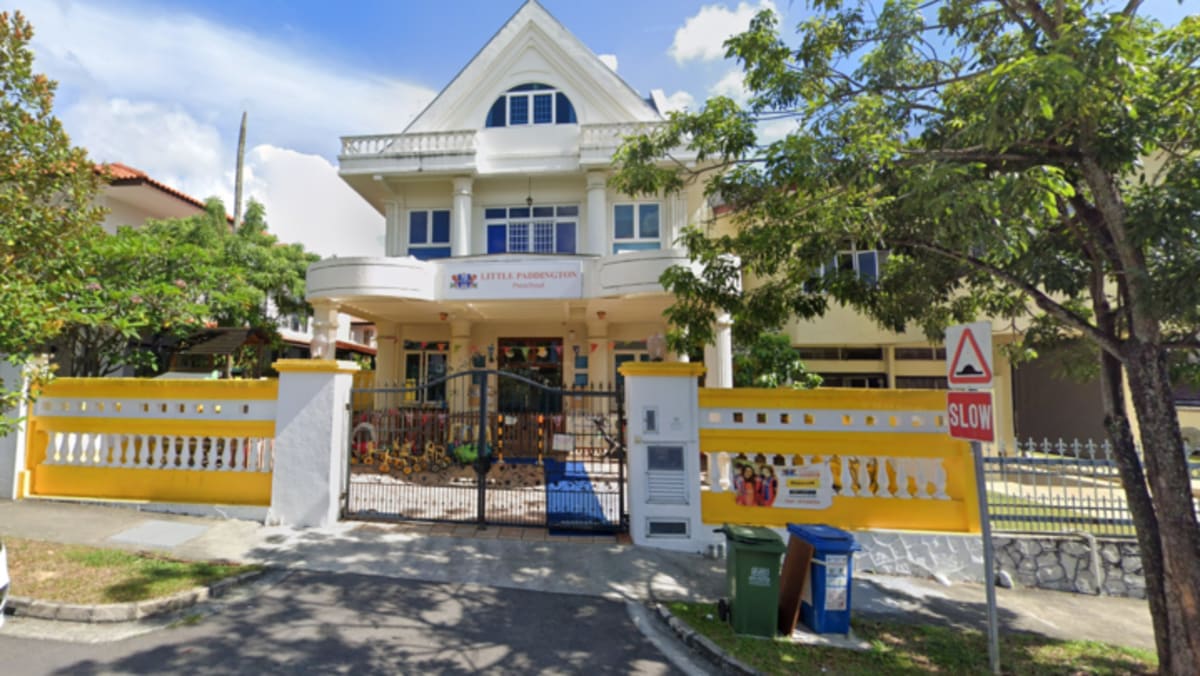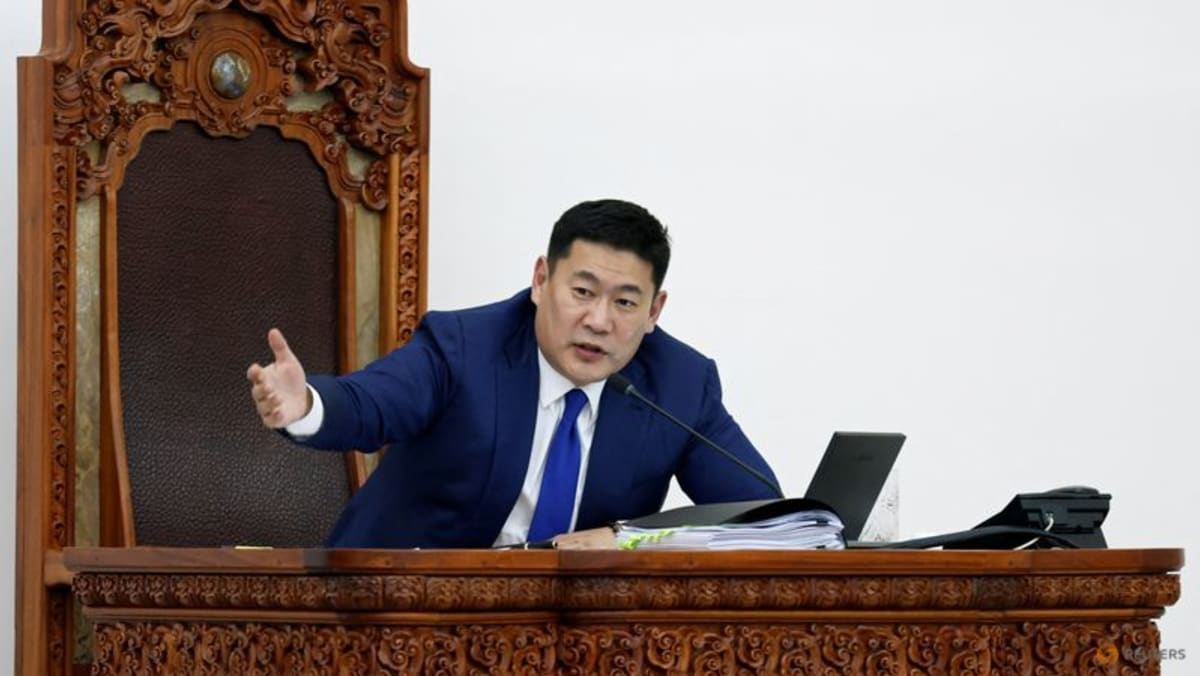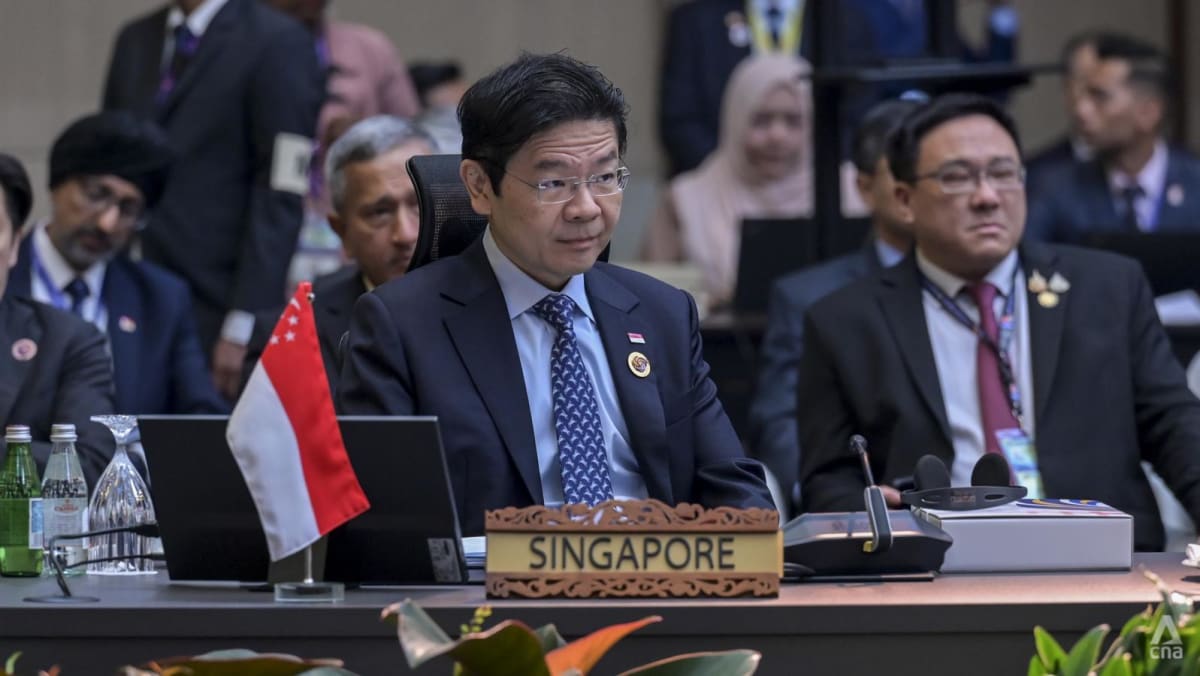BEIJING: Taiwan is set to hold an unprecedented public vote on Saturday (Jul 26) to oust two dozen elected opposition lawmakers from the Kuomintang (KMT), a move that could reshape its gridlocked legislature and shift the island’s political trajectory.
Dubbed the “Great Recall”, the vote is rooted in domestic parliamentary disputes but also fuelled by external triggers, from US demands for greater military spending to rising tensions with Beijing - all of which have raised the political stakes, analysts say.
If any of the recall votes succeed, by-elections must be held within three months. Their outcomes could determine whether the ruling Democratic Progressive Party (DPP) can break the current deadlock in the Legislative Yuan, where it doesn't hold a majority that has allowed opposition lawmakers, including those from the Taiwan People's Party (TPP), to stall key legislation and budget bills.
Even before the by-elections, if enough KMT lawmakers are unseated, the DPP could temporarily regain a working majority, giving it the numbers to push through proposals that the opposition has blocked.
Analysts say a DPP legislative majority would strengthen President Lai Ching-te’s hand to pass budgets - including defence spending increases - and push through social and economic policies. For the KMT, surviving the recalls would bolster its claim to be a check on executive overreach and position it strongly ahead of the 2026 local elections.
While the recalls are not explicitly about cross-strait policy, they could indirectly influence it.
Attaining a DPP majority could embolden Lai to pursue policies Beijing views as provocative, while a reinforced KMT may push for maintaining dialogue with China despite the freeze in official exchanges.
Analysts say either outcome is unlikely to trigger a drastic shift in Taiwan’s stance toward Beijing, but it could change how political parties at home use China-related issues in their strategies and messaging for local polls next year.
A FIRST IN SCALE AND SCOPE
The “Great Recall” campaign stems from mounting tensions between the executive and the opposition-led legislature.
Taiwan emerged from its 2024 elections with its first hung parliament in nearly two decades. The ruling DPP holds 51 seats, the KMT 52, while the TPP’s eight seats and two independents aligned with the opposition round out the 113-member Legislative Yuan.
Since last year, the KMT and TPP have joined forces to push through contentious bills while stonewalling DPP legislation, sparking public anger and repeated clashes in parliament.
Under Taiwan’s electoral rules, recalls can only be triggered a year after a legislator takes office and must meet strict thresholds.
These include a petition signed by at least 10 per cent of eligible voters in the district, followed by validation from the election commission. A recall vote is then held, where “yes” ballots must both outnumber “no” votes and exceed one-quarter of all registered voters to succeed.
Successful recalls trigger by-elections within three months, allowing parties to contest or reclaim the vacated seats. The party whose legislator was removed - which would be the KMT in this case - must field a new candidate.
Civic groups aligned with the pan-green camp - the political coalition led by the DPP - began collecting petitions in February, soon after lawmakers became eligible for recall, and 31 recall bids were eventually approved. All are against KMT lawmakers.
Twenty-four of these recall votes will take place on Jul 26. Another seven will be held on Aug 23, after their petitions missed the deadline to be held alongside the July ballots.
Civic groups aligned with the KMT also attempted to recall DPP lawmakers, but none of their petitions cleared the legal threshold requiring signatures from at least 10 per cent of registered voters.
About 6.8 million voters are eligible to cast their ballots on Saturday, with polling stations open from 8am to 4pm. Counting will begin immediately after polls close, with results announced shortly thereafter.
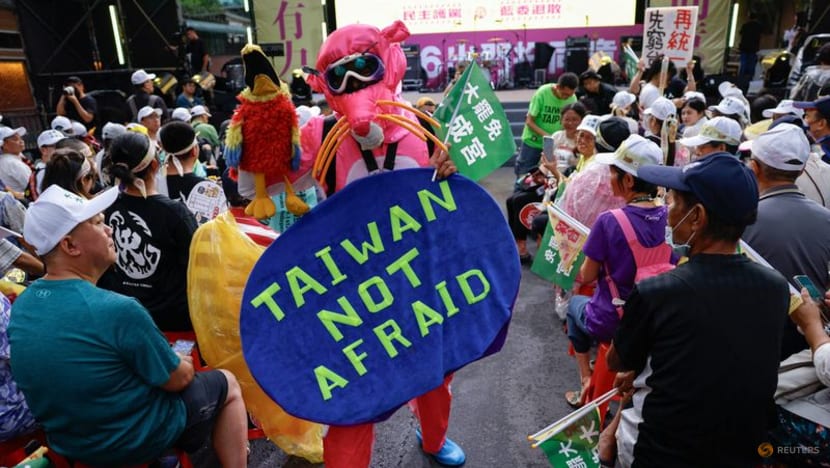 Supporters of the recall movement gather in Taipei, Taiwan, on Jul 19, 2025. (Photo: Reuters/Ann Wang)
Supporters of the recall movement gather in Taipei, Taiwan, on Jul 19, 2025. (Photo: Reuters/Ann Wang)
For the DPP, flipping just six seats could allow it to break the deadlock in the hung parliament and regain majority control of the legislature, a prospect the KMT has warned could pave the way for “one-party dominance”.
But analysts suggest such a scenario is unlikely.
Frank Lin, a political observer at Taipei University of Marine Technology (TUMT), estimates that only a “single-digit” number of the 24 KMT legislators facing recall votes on Jul 26 are at real risk of losing their seats.
He said his assessment of ground sentiment suggests most legislators targeted by the recall are in “safe” constituencies with solid party support, making it unlikely that voters' turnout will reach the level needed to unseat them. Though, a few lawmakers could face enough voter mobilisation to put their seats in jeopardy, he added.
“The real test will come in the by-elections … I expect perhaps two or three seats could flip to the ruling party, but that alone wouldn’t give the DPP a simple majority,” he told CNA.
“The DPP’s broader hope is to leverage those gains to sway some TPP lawmakers, which could then finally break the current deadlock in parliament.”
Voter turnout will be crucial in determining the outcome, said James Chen, an assistant professor of diplomacy and international relations at Tamkang University in Taiwan.
“The (number of) core supporters who initiated the recalls is largely fixed,” he told CNA, adding that if turnout is high, it may favour the KMT as it suggests broader voter mobilisation to reject the recalls.
Thousands of people gathered in the rain near the presidential office building on Thursday in support of the recalls.
KMT legislators fighting for their political lives have also taken to the streets to persuade voters to oppose the recall. Their supporters are expected to be out in force on Friday night for a final protest before polling stations open the next day.
GEOPOLITICAL SQUEEZE
Analysts say Taiwan’s “Great Recall” campaign is being driven by a mix of domestic discontent and growing geopolitical uncertainty.
On the regional front, Taiwan has been increasingly caught in the crossfire of great power rivalry.
Tensions have deepened under United States President Donald Trump’s return to the White House as his administration adopts a more inward-looking, transactional approach to foreign policy - one that has left Taipei navigating uneasy ground between a hostile Beijing and an unpredictable Washington.
Trump has yet to personally voice public support for Taiwan since taking office, while his administration has imposed tariffs of up to 32 per cent on Taiwanese goods and pressed Taipei to buy more US weapons, noted Lim Tai Wei, an East Asian affairs observer and professor at Soka University.
“To a certain extent, the ruling DPP is feeling the pressure,” Lim said. “If Washington treats Taiwan transactionally while relations with Beijing remain frozen, Taipei finds itself squeezed from both sides.”
During the “Great Recall” campaign, the KMT has repeatedly argued that Trump is primarily interested in Taiwan for its semiconductor giant, Taiwan Semiconductor Manufacturing Company (TSMC), the world’s largest and most advanced chipmaker.
In March, Trump successfully lobbied for TSMC to commit an additional US$100 billion to its US operations, including building five new “cutting-edge” fabrication plants on American soil.
The deal has fueled criticism, particularly from Taiwan’s opposition, that Taipei is “surrendering” its most valuable asset to Washington in exchange for security commitments - guarantees the US has not formally offered.
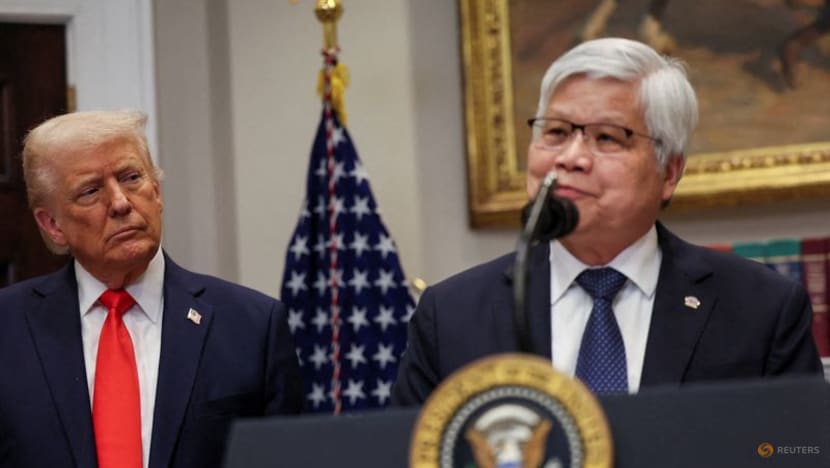 US President Donald Trump listens to C C Wei, Chairman and CEO of TSMC, as they make an announcement about an investment from Taiwan Semiconductor Manufacturing Company (TSMC), in the Roosevelt Room at the White House on Mar 3, 2025. (Photo: Reuters/Leah Millis)
US President Donald Trump listens to C C Wei, Chairman and CEO of TSMC, as they make an announcement about an investment from Taiwan Semiconductor Manufacturing Company (TSMC), in the Roosevelt Room at the White House on Mar 3, 2025. (Photo: Reuters/Leah Millis)
Tensions have also been heightened by opposition lawmakers’ decision that same month to slash Taiwan’s proposed NT$647 billion (US$21.9 billion) defence budget by NT$8.4 billion and freeze an additional NT$90 billion, according to parliamentary documents.
While portions of the funds were later unfrozen through party negotiations at the cabinet’s request, Taiwan’s 2025 defence spending now stands at 2.38 per cent of its gross domestic product (GDP).
The move came just as Lai publicly pledged to raise defence spending to 3 per cent of GDP, even as Trump and his Pentagon policy chief Elbridge Colby have urged Taiwan to commit up to 10 per cent.
“These actions understandably concern the ruling government, which relies on the passage of budget bills to advance the island’s security and strategic agenda,” said Lin of TUMT.
“The opposition has largely blocked or cut bills for the sake of obstruction, and that’s a central message campaigners are driving home to voters in this recall campaign.”
DOMESTIC PRESSURES
At the same time, domestic pressures are also a major undercurrent in the recall campaigns.
One contributing factor is frustration with certain KMT legislators seen as excessively combative in parliament, said TUMT’s Lin.
“Some KMT lawmakers are perceived as overly vocal and zealous in their scrutiny of the government,” he said.
“That approach has backfired, as critics now argue their confrontational style is contributing to the political gridlock holding the island back.”
Economic frustrations are also weighing on voters, with many citing rising living costs and wages that have failed to keep pace.
At a news conference last Monday, TPP caucus director Vicky Chen echoed voters’ economic frustrations, challenging pro-recall claims that the campaign is about defending Taiwan’s democratic values.
She accused political elites of being out of touch with younger and working-class Taiwanese, saying they ignore the struggles of those grappling with stagnant wages and rising living costs.
Surveys published last month highlight ongoing financial strains among Taiwanese workers, despite rising wages.
The average monthly salary reached NT$47,000 this year - a 5.4 per cent year-on-year increase and the highest in a decade, according to Taiwanese human resource platform 104 Job Bank.
Yet, a PricewaterhouseCoopers Taiwan survey found that 40 per cent of employees are still struggling financially, with only 57 per cent report having disposable income after expenses.
Analysts note that these bread-and-butter concerns often overshadow cross-strait tensions when voters head to the polls.
Wang Huiyao, founder and president of the Beijing-based Center for China and Globalization (CCG), said Taiwan’s long-standing pay stagnation and high cost of living have driven many to seek better opportunities abroad - including across the Taiwan Strait.
“Based on known statistics, some two million Taiwanese are making a living in mainland China and enjoying a slew of social and job benefits, offered for example by the Fujian provincial government,” he said.
“That’s why the DPP is playing the wrong cards if they are focusing on anti-China sentiment instead of improving the economy and livelihoods of the people,” Wang added, warning that such tactics “may backfire.”
 Recent surveys show many Taiwanese continue to face financial strains, with wage increases failing to keep pace with rising living costs. (Photo: AP/Chiang Ying-ying)
Recent surveys show many Taiwanese continue to face financial strains, with wage increases failing to keep pace with rising living costs. (Photo: AP/Chiang Ying-ying)
Both the ruling and opposition camps have framed the recall votes as a fight to “save democracy”, trading accusations of subverting the system - from claims of the KMT advancing a “pro-Chinese Communist Party” agenda, to charges that the DPP is acting “more communist than the communists.”
The DPP is widely viewed as independence-leaning, while the KMT is seen as favouring closer engagement with mainland China.
According to Wang, Taiwan’s pan-green camp has repeatedly sought to portray KMT lawmakers as aligned with Beijing, which Lai has labelled a “foreign hostile force” and “adversary”.
WANING ANTI-CHINA SENTIMENTS
But observers note that anti-China rhetoric, once a fixture in Taiwan’s election campaigns, has taken a backseat in the coming recall votes as voters prioritise issues like the economy and local governance.
“China is still used as a talking point, but it doesn’t resonate the same way as before,” said Chen from Tamkang University.
“This is the typical tactic that the DPP will use every time in this kind of major election. They always label the opposition (as) standing with China. But they don't actually have enough evidence,” he told CNA.
CCG’s Wang pointed to criticism levelled at 17 KMT legislators, led by Legislative Yuan majority leader Fu Kun-chi, who travelled to Beijing in April last year to meet Wang Huning, chairman of the Chinese People’s Political Consultative Conference.
The DPP accused them of “conspiring against Taiwan”, an allegation Wang dismissed as “political theatrics”.
“Politicians around the world meet their counterparts in Beijing, the recognised government of China. Are they plotting against their countries? Of course not. It’s entirely normal for officials to interact,” Wang said, calling the DPP’s framing a “straw man agenda”.
The “straw man” fallacy is when someone misrepresents or exaggerates an opponent’s position to make it easier to attack, rather than engaging with their actual argument.
Wang said public opinion in Taiwan does not favour formal independence and described the DPP’s strategy of stoking tensions with the mainland as a “desperate” bid to sustain what he called “separatist ambitions”. Such tactics are losing traction, he added.
“People are better informed today,” Wang said. “They follow global news and know that modern China is not what the DPP portrays. Mainland China is Taiwan’s largest trading partner and shares proximity, culture, and heritage. Why would people choose independence if it risks war and worsens their livelihoods?”
A survey published in April by Taiwan’s Mainland Affairs Council found that 87.5 per cent of respondents favour “broadly maintaining the status quo” in cross-strait relations, where Taiwan maintains its self-governed status without declaring formal independence or pursuing unification with China.
The council said the survey, conducted among 1,099 respondents aged 20 and above, carried a 95 per cent confidence level.
A survey released in February 2024 by National Chengchi University’s Election Study found that over 80 per cent of Taiwanese favour maintaining the status quo in relations with China.
The survey also found that combined support for “immediate and future independence” fell from 32.1 per cent in 2020 to 25.3 per cent in 2023, as reported by Taiwan’s Central News Agency.
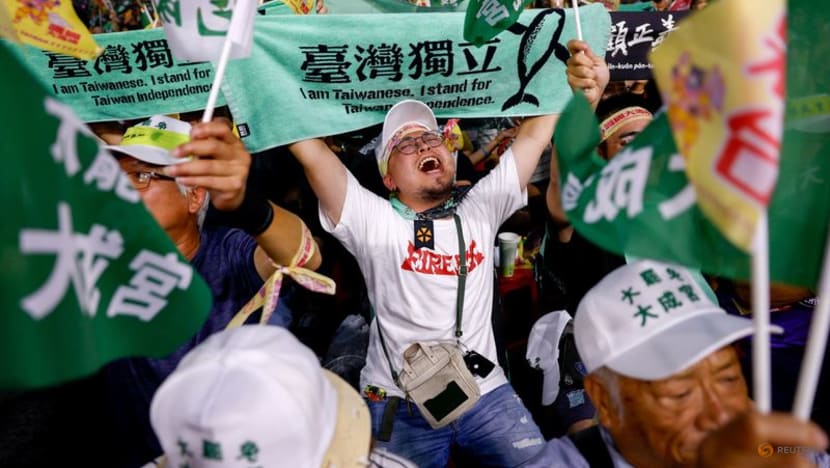 Supporters of Taiwan's recall movement, many aligned with the independence-leaning camp, carry banners backing greater autonomy for the island, on Jul 19, 2025. (Photo: Reuters/Ann Wang)
Supporters of Taiwan's recall movement, many aligned with the independence-leaning camp, carry banners backing greater autonomy for the island, on Jul 19, 2025. (Photo: Reuters/Ann Wang)
The “Great Recall” campaign coincides with Lai’s “Unity Ten Speeches” tour across Taiwan. The 10-part series, conducted as an islandwide tour, is aimed at rallying public support on key issues such as defence, diplomacy, and cross-strait relations. Lai has delivered four of the speeches so far.
While the presidential office has denied any connection between the two, analysts have pointed out the close timing. Lai launched his tour on Jun 22, just two days after the date of the recall vote was formally scheduled.
In his first speech, Lai remarked: “Taiwan has never belonged to the People’s Republic of China (PRC)” and “the PRC has never ruled Taiwan for even a single day”.
China’s Taiwan Affairs Office swiftly issued a sharp rebuke a day later, accusing Lai of spreading “lies and deception, hostility and provocation”.
“(Lai’s) distortions of history, reality, and legal principles will only be swept into the dustbin of history,” the office said. Beijing views self-ruled Taiwan as a breakaway province to be reunited, by force if necessary.
Chen of Tamkang University said Lai’s rhetoric was clearly designed to provoke a reaction from Beijing, creating a sense of “crisis” among Taiwanese voters.
“Creating a sense of crisis with the mainland as the antagonist has benefited the DPP in the past, so it’s not surprising they are trying to replicate the strategy,” he said.
During the 2020 presidential election, as China was drafting and considering the imposition of Hong Kong’s national security law, the DPP amplified fears that Taiwan could “become the next Hong Kong” if the KMT returned to power and eventually embraced the “one country, two systems” policy.
Analysts say this narrative was a key factor behind then-President Tsai Ing-wen’s decisive re-election victory.
It shows that the pan-green camp’s tactic of stoking anti-China sentiment “retains some effectiveness, even if it has lost its potency”, said Lin from TUMT.
“The reality is that Taiwanese want to have the final say in deciding the island’s future,” Lin said. “Resentment builds when they are told what to do - especially by mainland China,” he added.
“The question is, will this continued approach by the DPP convert voters sitting on the fence or in the other camp? If it won’t, the best such tactics can do is consolidate their own support base.”
SETTING THE TONE FOR FUTURE POLLS
Whatever the result of the recall votes, analysts say Taiwan’s China policy is unlikely to shift.
Lai has largely maintained the cross-strait approach of his predecessor, rejecting Beijing’s one-China principle while stopping short of declaring formal independence. He has repeatedly asserted that Taiwan is already a sovereign state, and only its 23 million people have the right to decide the island’s future.
While seeking to maintain the status quo, Lai has also pledged to strengthen Taiwan’s self-defence capabilities, counter mainland influence operations and deepen ties with democracies.
But observers say the vote could still reshape the balance of power in the legislature and signal growing voter fatigue with politicians who rely on cross-strait fearmongering to rally support.
A legislature less defined by ideological battles over China and more by local accountability may emerge, setting the tone for Taiwan’s 2026 local elections to choose mayors and magistrates, typically held near year-end, said TUMT’s Lin.
It will signal whether voters are tiring of parties using cross-strait tensions as a rallying cry, potentially pressuring both camps to recalibrate their strategies ahead of future national contests, he added.
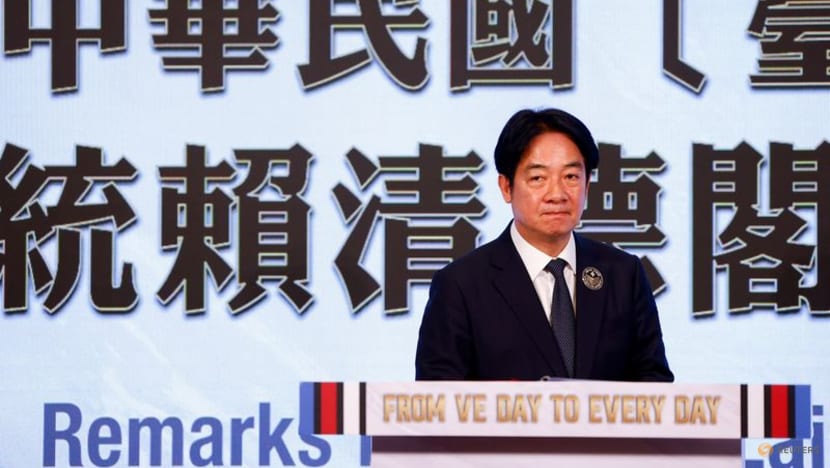 Taiwan President Lai Ching-te delivers a speech on the anniversary of the end of WWII in Europe in Taipei, Taiwan, on May 8, 2025. (File photo: Reuters/Ann Wang)
Taiwan President Lai Ching-te delivers a speech on the anniversary of the end of WWII in Europe in Taipei, Taiwan, on May 8, 2025. (File photo: Reuters/Ann Wang)
Lin referred to the Jul 26 recalls, where 24 KMT lawmakers face the risk of being unseated, potentially giving the ruling DPP a brief window to regain legislative ground, and a chance to consolidate that advantage through subsequent by-election wins.
“To put things into perspective, if none of the 24 KMT legislators lose their seats, the result will speak for itself - it would signal that the pan-green camp’s strategy has misfired,” Lin said.
“In many ways, this recall campaign is a precursor to next year’s local elections. Depending on the outcome, the DPP could either ride the momentum or be forced to completely rethink and regroup if the results turn against them.”
Regardless of the outcome, Taiwan is likely to face a more fractious political landscape rather than a unified government focused on advancing the island’s agenda, said Tamkang University’s Chen.
“Both camps have made highly partisan, pointed remarks during the campaign. The effects will likely linger beyond the vote, as parties remain fixated on the next election,” he said.
“Unity, despite public calls for it, will be hard to achieve.”


